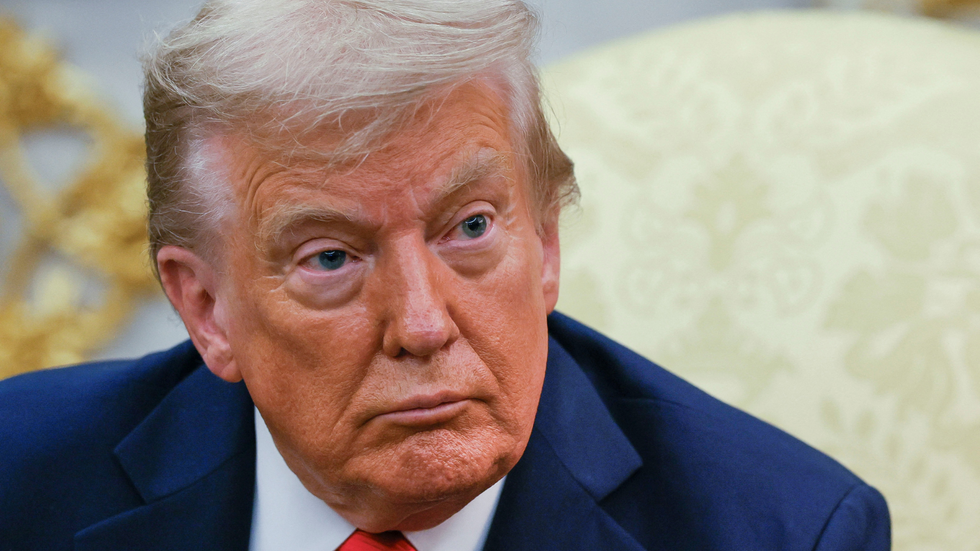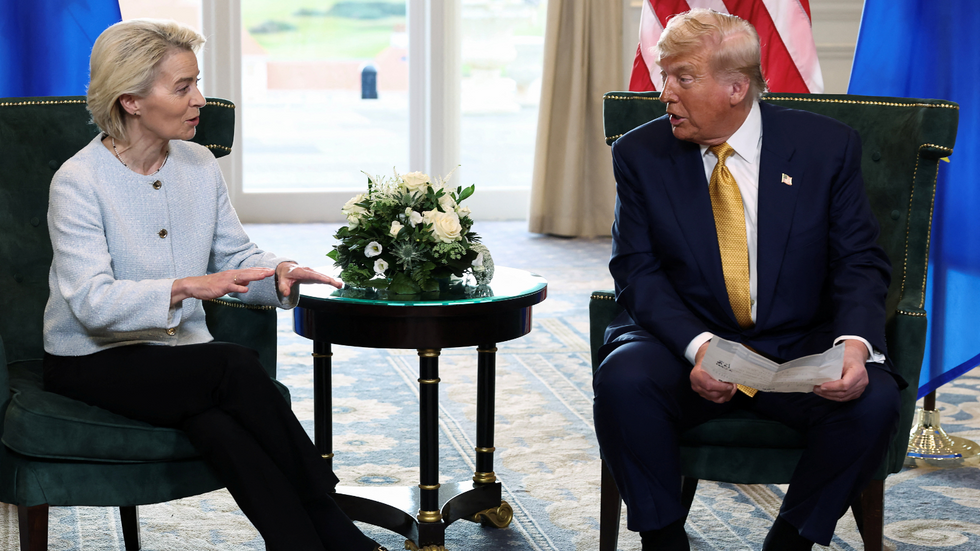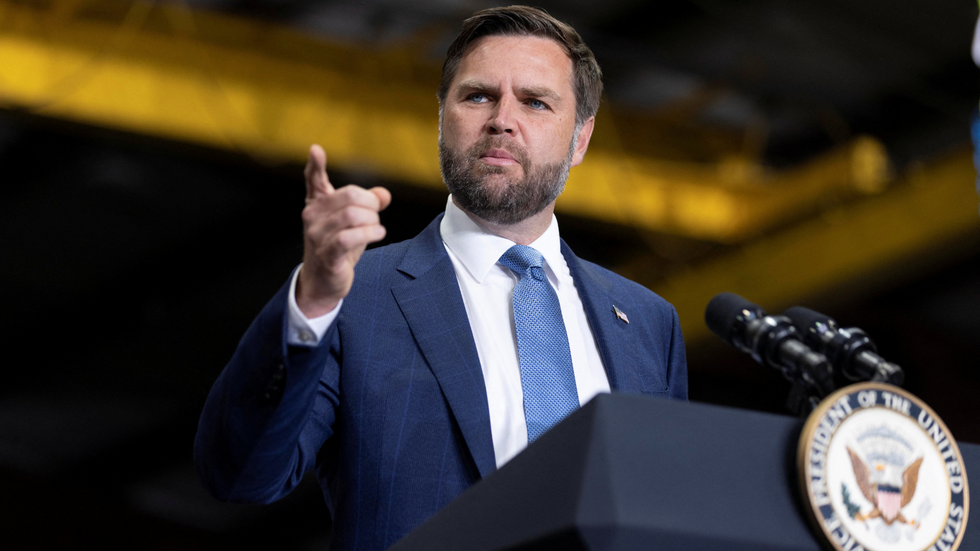



Donald Trump is considering imposing sanctions, including travel bans, on European Union officials over claims they are "censoring Americans".
Trump's administration is reviewing the potential sanctions for officials from EU or member states which implement the bloc's Digital Services Act (DSA), claiming the law censors US citizens and puts higher costs on American tech companies.
While it is not yet known which officials the sanctions would target, senior US figures held internal meetings to debate the topic last week, sources familiar with the matter told Reuters.

Donald Trump is considering imposing sanctions on European Union officials over claims they are 'censoring Americans'
|REUTERS
If the action goes ahead, it would be an unprecedented move by the Trump administration to battle against what it sees as an attempt by Europe to censor conservative voices.
Although senior officials from the US State Department are yet to make a final decision on the future of the plans, it is believed any sanctions would likely come in the form of visa restrictions.
The EU's DSA is meant to push tech companies to do more to tackle illegal content, including hate speech and child sexual abuse material, in order to make the online environment safer.
However, Washington has claimed the DSA is contributing to the EU's pursuit of "undue" restrictions on freedom of expression.

President of the European Commission, Ursula von der Leyen, met with Donald Trump earlier this year
|REUTERS
Relations between the EU and the US are already uneasy after tariff threats and criticism by Washington over the treatment of US tech companies.
Earlier this month US diplomats in Europe were instructed by the White House to launch a lobbying campaign to build opposition to the DSA with the hope of getting it amended or appealed, according to Reuters.
It is understood Marco Rubio, the Secretary of State, told US diplomats to convey concerns about the legislation and the rising costs incurred by American companies to EU governments and digital services authorities.
Although the EU has said the legislation does not target them, US companies including Meta have said the DSA is akin to censoring their platforms.

US Vice President JD Vance accused European leaders of backsliding on democracy
|REUTERS
Other top US officials have also lashed out at Europe for "censoring" Americans.
In February, US Vice President JD Vance accused European leaders of backsliding on democracy and censoring groups such as Germany's right-wing AfD party.
However, a spokesman for the EU Commission previously called these claims by the US "completely unfounded".
During Mr Trump's visit to the UK last month the Prime Minister defended the UK's Online Safety Act after the Trump administration said it was monitoring the situation with "great interest and concern".
Earlier this month, the US State Department's annual Human Rights Practices report said there were "credible reports of serious restrictions on freedom of expression".
According to the report, although the UK law "generally provided for freedom of speech", there were "specific areas on concern" regarding "restrictions on political speech deemed 'hateful' or 'offensive'".
A spokesman for the US State Department said: "We are monitoring increasing censorship in Europe with great concern but have no further information to provide at this time."
An EU Commission spokesman said: "Freedom of expression is a fundamental right in the EU. It lies at the heart of the DSA.
"It sets out rules for online intermediaries to tackle illegal content, while safeguarding freedom of expression and information online."
